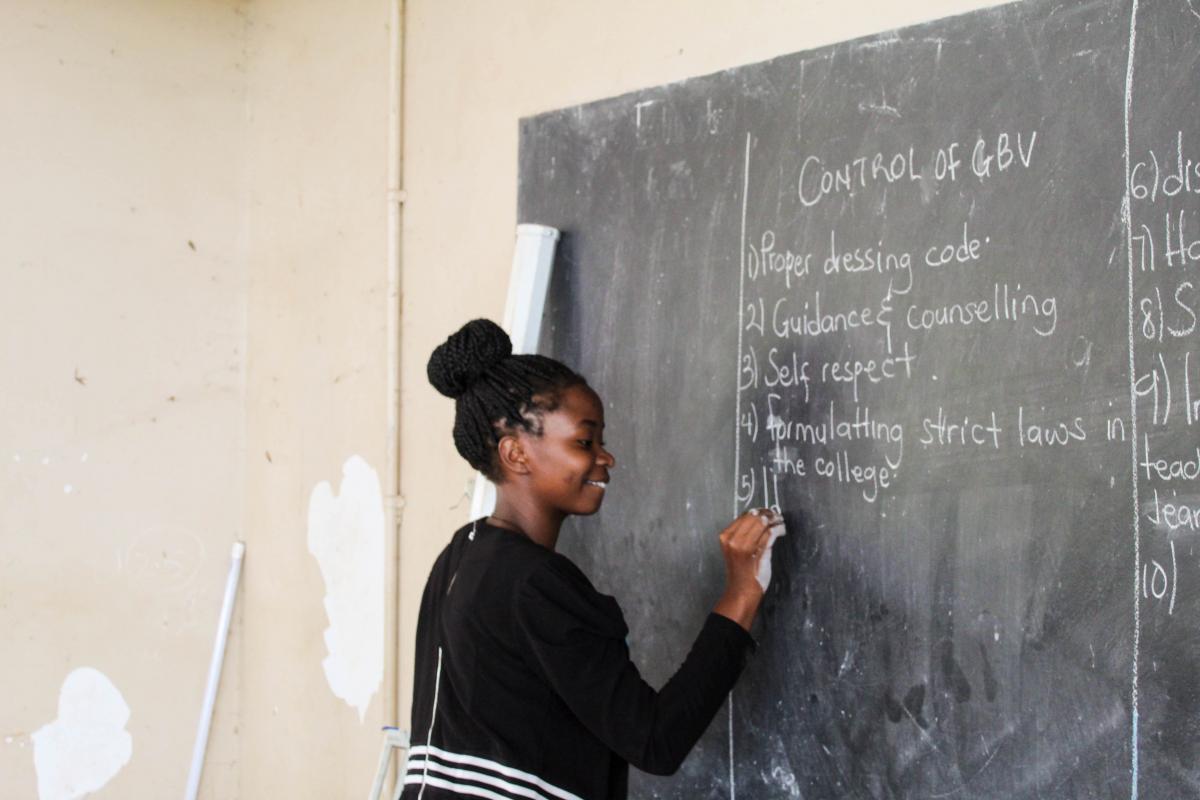Teacher Trainers at the Forefront of Ending Gender-Based Violence in the National Teachers' Colleges - Uganda
“In 2017, a female student confided in me to
arbitrate a situation between her and a male student who had impregnated her
and later denied the pregnancy yet they were going to leave the college. Its
incidents like these and many others that inspired me to shoot this film as a
film is a good platform to attract attention to GBV in NTCs and appease
emotions,” says Ms Sarah Nawoova, a Lecturer of Music and Language in NTC
Kaliro.
According to the GBV study which was
commissioned by the Ministry of Education and Sports, with support from the
Belgium – Uganda Study Fund, Ghent University (Belgium) and Mbarara
University (Uganda), it was found that more women than men had experienced some
form of violence. This greatly
affects their academic performance since it poses a barrier to quality
education and students lose the ability to focus on education because of the
psychological and physical torture.
Since education has a pivotal role to play in
sustainable development, Enabel, the Belgian development agency is supporting
the need to create a safe learning environment in these training institutions.
In doing so, the Teacher Training Education (TTE) Project which is supported by
Enabel, is working with teaching staff in the NTCs of Kabale, Kaliro, Mubende,
Muni and Unyama to end GBV in the colleges. The centrality of the teaching
staff has been well established as the GBV study findings have equipped them
with the knowledge to identify and control the prevailing forms of GBV in the
NTCs.
The teaching staff are key people when it comes
to raising awareness and behavioural change among the students and the
managerial personnel and because of this position, they have taken it upon
themselves to raise awareness and address the different forms of GBV in the
NTCs. Ms Sarah Nawoova of NTC Kaliro shot a short film and composed a poem
among other awareness-raising tools, in a bid to educate the students and staff
about the different forms of GBV.
“I felt that writing something related to
students experience and acting it out would pass on the message in addition to
speaking about it,” added Ms Sarah Nawoova.
During the dissemination of the study findings,
gender-responsive trainings were held for teacher trainers especially in the
areas of hygiene, sexual violence and they were trained on how to respond to
Gender-based violence in the NTCs through action strategies like Public
Dialogues, Sensitization sessions among others.
Teacher trainers were also encouraged to
provide a conducive environment where victims of GBV can approach them and also
counsel them throughout the process in order to fully achieve the SDG 4.
Laatste nieuws van dit project
Geen nieuws

